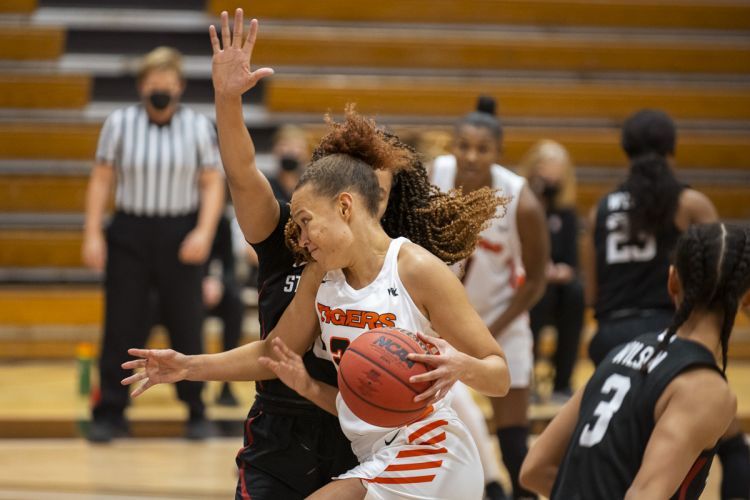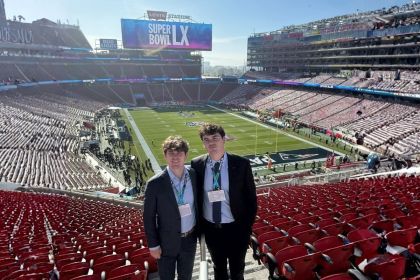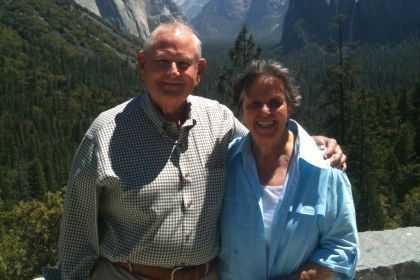Breadcrumb
Pacific sport management classes adapt to industry change, uncertainty

Pacific women's basketball players senior Valerie Higgins playing against Stanford
Professional teams playing in common “bubble” facilities. College athletes competing in empty arenas. Minor-league teams with truncated or cancelled seasons. High school and youth seasons that simply did not happen. And the importance of athletes stepping forward to speak out against racial injustice.
The sports world has been tumultuous during the past year, and that has caused significant impact on the way sport management associate professor Pete Schroeder teaches his classes.
“There are definitely things that I have changed in terms of instruction with what has happened with sports due to the pandemic,” Schroeder said. “But, honestly, social justice issues and their impact on sports have caused significant changes in our classes. Personally, I was born in 1973, so I was not part of the Muhammad Ali and Jim Brown era of athletes speaking out. I had never seen anything like we saw last year.”
While Schroeder says there have been “excellent conversations” about social justice in sports during online classes, he ponders how much better they could have been in person.
“The online format is not really conducive to having those really deep discussions that these issues merit,” Schroeder said. “With in-person classes, you get some very lively class discussions. But I do appreciate some of the speakers that were brought in, during the fall, including Kevin Merida of ESPN. We had some excellent guest speakers.”
University of the Pacific sport management alumni work for major-league and minor-league teams as well as colleges and related fields throughout the country. The program, part of the Eberhardt School of Business, has a strong track record of job placement.
But there has been uncertainty in the job market as COVID-19 has wreaked havoc with athletics.
“It’s difficult to see what has happened. It is obvious that there aren’t as many jobs open, which is making it even harder to get into an industry that we are passionate about,” said Bryce Duncan ’21. “Internships are a huge part of that.”
Schroeder said the vast changes in athletics must be considered for both classroom instruction and helping students who graduate find jobs.
“The whole financial model for sports is sort of up in the air,” Schroeder said. “We address those things in class. We also talk about the event protocols and what teams must do to insure safety. So much has changed and, of course, I am learning on the fly about some of these matters, too. I mean, who would have thought that the Stockton Ports would have to pay attention to the county health department? These topics lead to important class conversations.”
“I personally don’t find myself watching sports differently, but you can notice that there is a difference,” Duncan said. “I think what bubbles and empty arenas show is just how important a crowd is in sports.”
Once the pandemic is over, or at least under control, Schroeder believes fans will “come back in droves” to watch sports in person. He also anticipates teams will put new procedures and policies into effect.
“I think fans are going to be ready for the in-person sports experiences that they have missed,” he said. “There also likely will be some significant changes all the way from parking procedures to ordering food on your phone for delivery to your seat, so that people are not congregated in long lines.
“It is a tough time right now for the industry. But I am confident that there will be a rebound.”
For more information on the sports management program, contact associate professor Pete Schroeder at 209.946.2703 or pschroeder@pacific.edu.





